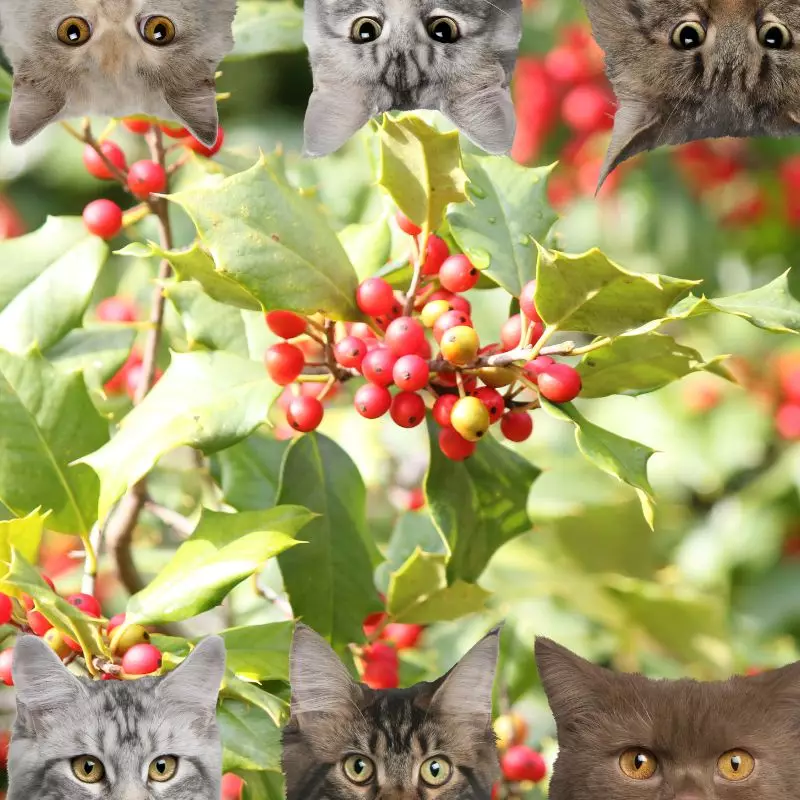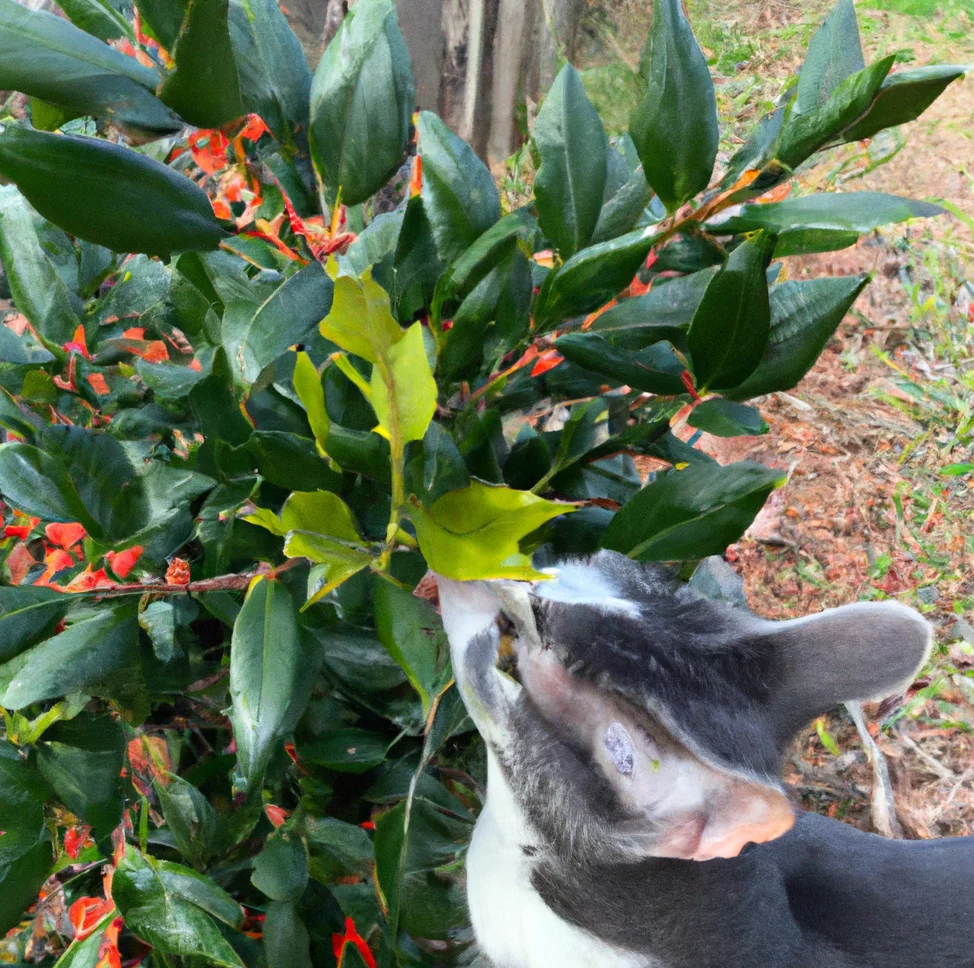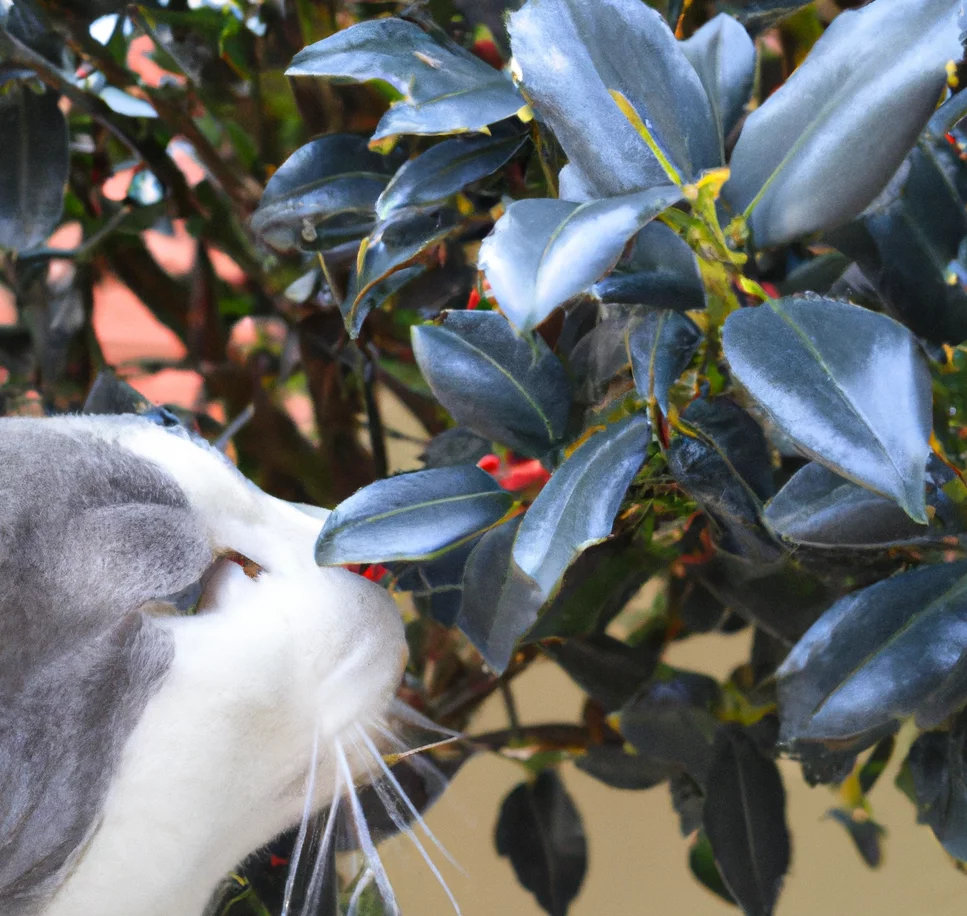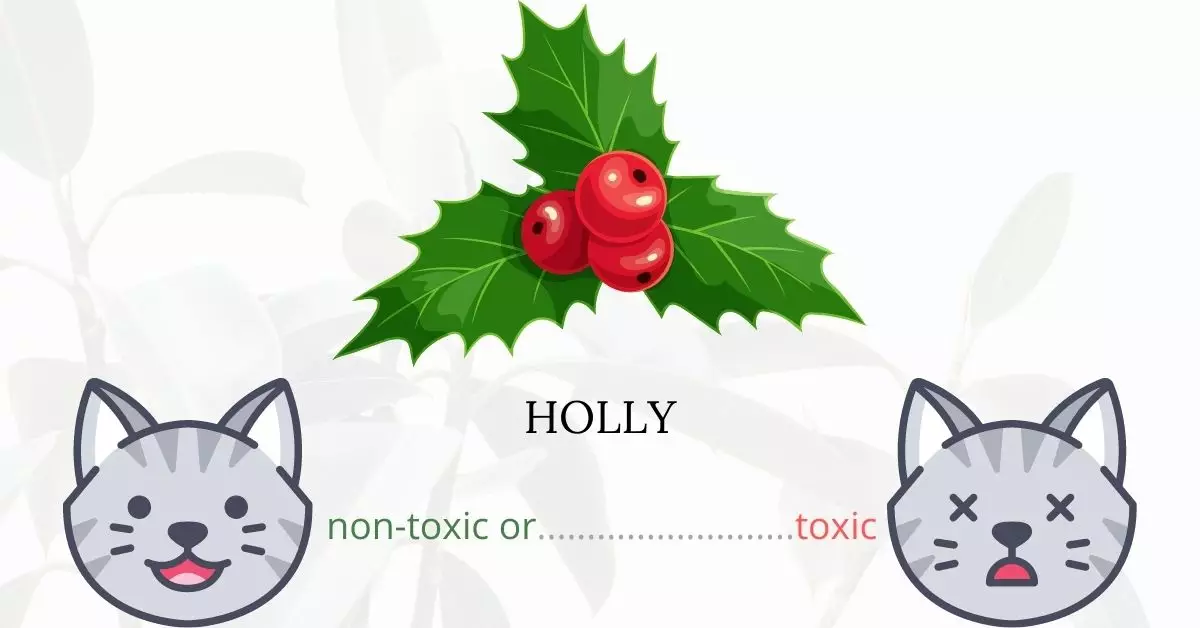Yes, holly is toxic to cats. This evergreen shrub contains poisonous components such as saponin glycosides, methylxanthines, and cyanogens. Particularly, the holly plant’s young leaves and green berries possess the highest concentration of saponin glycosides, which can damage red blood cells and affect the mucosal cells in a cat’s small intestine. Symptoms of ingestion include excessive head shaking, drooling, and lip-smacking. While there is no concrete evidence suggesting that holly poisoning is fatal for cats, it can severely harm their gastrointestinal system.
This article was penned in collaboration with a team of experienced DVMs (doctors of veterinary medicine). Their invaluable insights allow us to deliver accurate and up-to-date information regarding the potential risks various plants, like Holly, pose to cats. Moreover, to ensure the reliability of our content, we have extensively researched high-authority websites such as ASPCA and PetMD for every plant discussed.
Clinical Signs of Holly Poisoning in Cats

When a cat comes into contact with or ingests parts of the holly plant, several clinical signs can manifest, signaling potential poisoning. These symptoms arise primarily due to the toxic components in holly, such as saponin glycosides, which can have harmful effects on a cat’s system. It is vital to understand each sign and the underlying cause:
- Vomiting (possibly with blood): This is a common reaction to many toxins. The presence of toxic compounds can irritate the stomach lining, leading to inflammation and, consequently, vomiting. Blood in the vomit indicates potential damage or ulceration in the gastrointestinal tract.
- Hypersalivation due to nausea: The ingestion of toxic substances often causes nausea. In cats, nausea can lead to increased salivation or drooling, which is their body’s way of trying to eliminate or cope with the noxious substance.
- Loss of appetite: Feeling unwell and the discomfort caused by gastrointestinal irritation often result in a decreased desire to eat.
- Abdominal pain: The harmful compounds in holly can cause inflammation of the intestines and stomach, leading to abdominal discomfort or pain. A cat may show signs of discomfort, such as hunching over or being reluctant to move.
- Diarrhea: The body’s attempt to rapidly expel toxins can lead to increased bowel movements, resulting in diarrhea.
- Sedation: Some components in holly might have a sedative effect on the nervous system, making the cat appear drowsy or lethargic.
If you observe any of these symptoms in your cat after potential contact with holly, it is crucial to seek veterinary assistance immediately. The severity of the reaction often depends on the amount of holly consumed and the individual cat’s sensitivity to the plant.
First Aid and Treatment of Holly Poisoning in Cats

Holly poisoning has no specific antidote thus, treatment is focused on controlling symptoms and limiting additional absorption of toxins.
If the consumption was recent, the vet may induce vomiting to clear any leftover plant matter from the cat’s gastrointestinal tract. He may also use activated charcoal to bind any residual plant matter in your cat’s stomach.
Another option of your vet is gastric decontamination which is a therapy used to empty the toxin from the cat’s gastrointestinal tract to decrease its absorption. Fluids are also essential to prevent or treat dehydration of your cat. Other medicines to ease your cat’s symptoms may be also prescribed by the vet as part of supportive and symptomatic therapy.
Recovery from Holly Poisoning in Cats

In cats, holly poisoning usually leads to a full recovery within 24 hours. If your cat isn’t treated by a veterinarian, he or she will take much longer to recover. Holly has a low toxicity level, and in the vast majority of cases, all cats recover entirely. Large amounts of the American Holly plant consumed by very young or very old cats may have a negative outcome.
Prevention of Holly Poisoning in Cats
Be mindful when bringing in any Christmas decorations in your house. Always check if your ornaments and decors contain holly berries or any toxic plants. Restrict your cat from going outdoors as he or she may be exposed to hollies in the neighborhood.
If you love plants but have cats at home, check out these lists:





